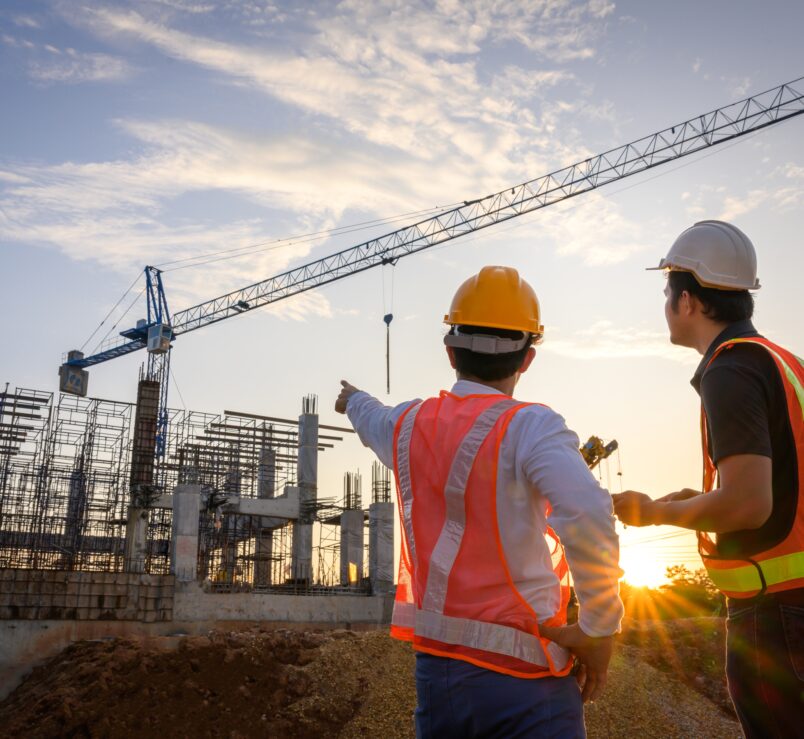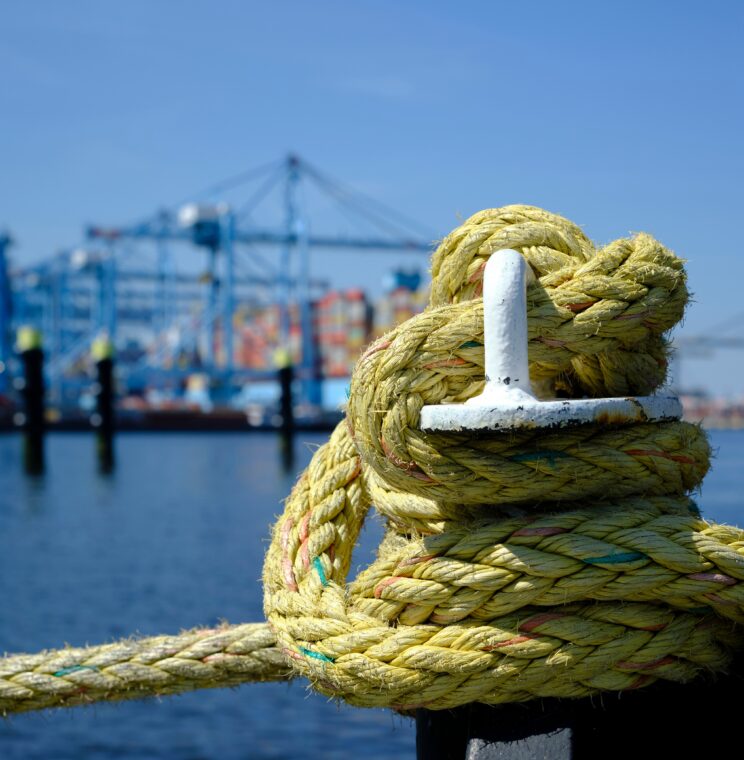Technical Secretariat of the High-Level Construction Forum
Ecorys, commissioned by DG GROW, has managed the Technical Secretariat of the High Level Construction Forum (HLCF) since its inception in 2021, ensuring stakeholder engagement with industry, national authorities, social partners, academia and other actors, as well as policy input, event organisation, and research. The HLCF has co-created and now is responsible for monitoring the implementation of the Transition Pathway for Construction, serving as the main platform for industry dialogue. It informs and consults the construction ecosystem on EU policies, enhancing visibility, collaboration, industry resilience, as well as the green and digital transition across the sector.
Background
In 2020, DG GROW initiated efforts to align the built environment with the European Green Deal and the New Industrial Strategy for Europe, emphasising a Sustainable Built Environment Strategy. However, the COVID-19 crisis shifted priorities toward urgent recovery measures, leading to initiatives such as the Recovery and Resilience Facility and the Renovation Wave, which positioned the construction sector at the core of the EU’s green and digital transition. The 2021 EU Industrial Strategy introduced industrial ecosystems, emphasising co-created transition pathways, including for construction. The New European Bauhaus, launched in 2021, further integrated sustainability, aesthetics, and inclusivity into the built environment.
Building on the previous Construction 2020 initiative, The HLCF, introduced in 2021, played a central role in the co-creation of the Transition Pathway for Construction (2021–2023) and has since monitored its implementation. The pathway has shaped policy milestones, including the Energy Performance of Buildings Directive (EPBD) recast and the revised Construction Products Regulation (CPR). Additional efforts focus on digitalisation, circular economy, industrialised and offsite construction, housing and skilled labour. In 2025, the HLCF is engaging stakeholders to shape priorities of the new Commission, including the potential European Strategy for Housing Construction and contributions to the upcoming Circular Economy Act under the Clean Industrial Deal.
Key Findings
Since 2021, Ecorys has supported the growth of the High Level Construction Forum (HLCF) into a dynamic platform with over 1,300 members, including companies, industry associations, national authorities, and academia. The forum’s plenary meetings and thematic sessions remain open to all stakeholders, fostering broad engagement.
Co-creation process (2021-2023)
Ecorys played a key role in the co-creation process of the Transition Pathway for Construction, starting with the first HLCF plenary in September 2021, which gathered 220 participants. It facilitated stakeholder consultations through cluster meetings, informing the Commission’s December 2021 staff working document on transition scenarios.
A targeted stakeholder consultation, conducted by Ecorys between December 2021 and March 2022, gathered critical input from industry actors. This process resulted in a consultation report and executive summary, which shaped the pathway’s priorities.
During the second forum in April 2022 (190 participants), stakeholders identified 12 key topics, leading to nine thematic sessions later that year. These deep-dive discussions shaped the final Transition Pathway for Construction, published on 15 March 2023 during the third forum. The document outlines six building blocks for the ecosystem’s green and digital transition and improved resilience, incorporating insights from HLCF plenaries, thematic sessions, and public consultations.
Monitoring and implementation (2023-2025)
Since 2023, Ecorys has supported the monitoring of the transition’s implementation by inviting all stakeholders to submit additional commitments aligning with the transition pathway and by organising nine webinars to follow up on the actions needed for implementation. These webinars covered green transition priorities (e.g., the EU Whole Life Carbon Roadmap, the revised Construction and Demolition Waste Protocol, and the EU Taxonomy’s technical screening criteria for sustainable construction activities), industry resilience (e.g., the Blueprint for Skills and Indoor Air Quality), and innovative construction techniques, including the rollout of industrialised and offsite construction methods. This included a study conducted by Ecorys on the challenges of scaling up offsite construction, featuring groundwork examples alongside leading industry practices from around the world.
In 2024, the first in-person forum was organised, marking one year since the publication of the Transition Pathway for Construction. The forum facilitated discussions on actions that aligned with the Transition Pathway’s recommendations and provided valuable input on future EU priorities for the construction ecosystem.
In 2025, the first four years of the HLCF have culminated in:
- A report showcasing examples of how the recommended actions of the Transition Pathway have been implemented by HLCF members and the EU.
- The organisation of the 5th forum, which included a collaborative workshop on EU priorities. This workshop discussed new priorities for the European Commission in three targeted areas while also building on previous discussions.
This short workshop provided input for the potential new European Strategy for Housing Construction, aimed at supporting housing supply as part of the Affordable Housing Plan. It engaged stakeholders in shaping the priorities of the new Commission, including the potential European Strategy for Housing Construction and contributions to the upcoming Circular Economy Act under the Clean Industrial Deal.
Key Resources




